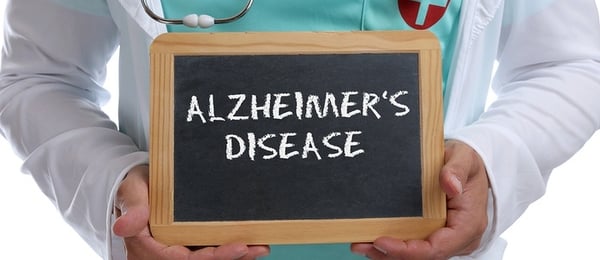
The diagnosis of a loved one with Alzheimer’s can be frightening, confusing and overwhelming. While these emotions are natural, they can also be immobilizing—especially if you have no experience with the disease. Finding out as much as possible about the situation can offer both clarity and peace of mind for patients and caregivers alike. Read on for a roundup of five questions to ask your aging loved one’s healthcare team after an Alzheimer’s disease diagnosis.
1. Could it be anything other than Alzheimer’s disease?
When older people start to experience memory deficiencies and cognitive decline, many people automatically go straight to Alzheimer’s disease. However, other dementias present in a similar way. Geriatrician Dr. Susann Varano told US News & World Report, “Dementia is simply an umbrella term. If a physician says, 'you have dementia,' it's the same thing as saying, 'you have cancer…. "Is it Lewy Body dementia? Is it vascular? Is it a frontotemporal disorder? Is it mixed dementia? Is it Alzheimer's disease?" Each of those types of dementia has a different path. Some accelerate more than others, and some have different presenting symptoms, so it's very important to get the actual diagnosis of dementia." In a recent video by Dr. Thomas Weiss - he describes the clinical differences of the four most common dementias.
Not only that, but other diseases and conditions, including everything from Parkinson’s to lack of sleep, can mimic the symptoms of Alzheimer’s. "Alzheimer's is a diagnosis of exclusion, so to be fair to the patient and to the caregiver, things have to be excluded," Varano continues.
Even some medication side effects can be misdiagnosed as Alzheimer’s, which is why it’s critical to pursue an accurate diagnosis.
2. What is the progression of the disease and what steps should I be taking?
Alzheimer’s is a progressive disease comprising many changes over weeks, months and even years. Understanding what to expect can help caregivers make proper preparations, such as getting your aging loved one’s finances in order and making housing plans. The more proactively you attend to these issues, the more involved your aging loved one can be in the decision-making process.
Additionally, it’s important to be aware that some health complications do occur with Alzheimer’s and may be more likely to occur at certain stages of the disease. These include dehydration and malnutrition, fall-related injuries, increased risk of infection, and body systems failure.
On a related note, discussing the progression of the disease can also help you notice if unexpected complications arise as the course of the disease continues.
3. What treatment options are available and most suited to the situation?
While there’s no cure for Alzheimer’s, there are different treatments as well as different treatment needs among patients. Talking to your aging loved one’s doctor about the best treatment option for your particular situation and/or how this is determined is an important part of the process.
This is also a good time to ask about issues like side effects, signs you should be watching for, how a treatment’s effectiveness is measured, and what will happen if a treatment doesn’t work or stops working. You may also wish to inquire about alternative medicines and therapies at this point.
4. Are there any clinical trials my aging loved one could participate in?
Knowledge about the treatment and progression of Alzheimer’s disease is constantly growing. If your aging loved one lives near a university or research clinic, he/she may be able to participate in the cutting-edge research being conducted into Alzheimer's treatments. In addition to possibly altering the progression of their own disease, participants in research studies also play an important role in advancing research toward a cure.

5. How much does my loved one understand?
Many Alzheimer’s patients have a limited understanding of their conditions. While this can be challenging for caregivers, experts advise against trying to make them understand. Registered nurse and A Deeper Perspective on Alzheimer’s and Other Dementias author Megan Carnarius told US News & World Report, "A lot of people waste a lot of time and frustrate and mystify their loved ones by trying to force them to understand that they have memory loss instead of just moving on.” Understanding this as a caregiver can help you let go and move forward most beneficially. (Go here to learn more about communicating with someone with Alzheimer's disease.)
One last thing to keep in mind? While these questions can be difficult to ask (and the answers even harder to hear), maintaining open lines of communication with your aging loved one’s doctor is the best way to ensure that he/she is receiving the best quality of care—both from medical professionals as well as the caregiving team.
mmLearn.org offers a large library of free videos for caregivers of older adults, covering topics pertaining to senior care. Whether you are a healthcare professional or a family caregiver, if you are caring for an older adult we know that you will find mmLearn.org an essential learning and guidance tool for all of your caregiver training needs. For more crucial caregiver support, access our free online caregiver video library today.

